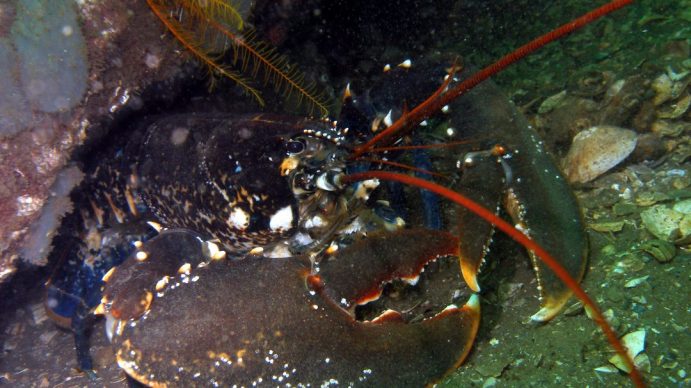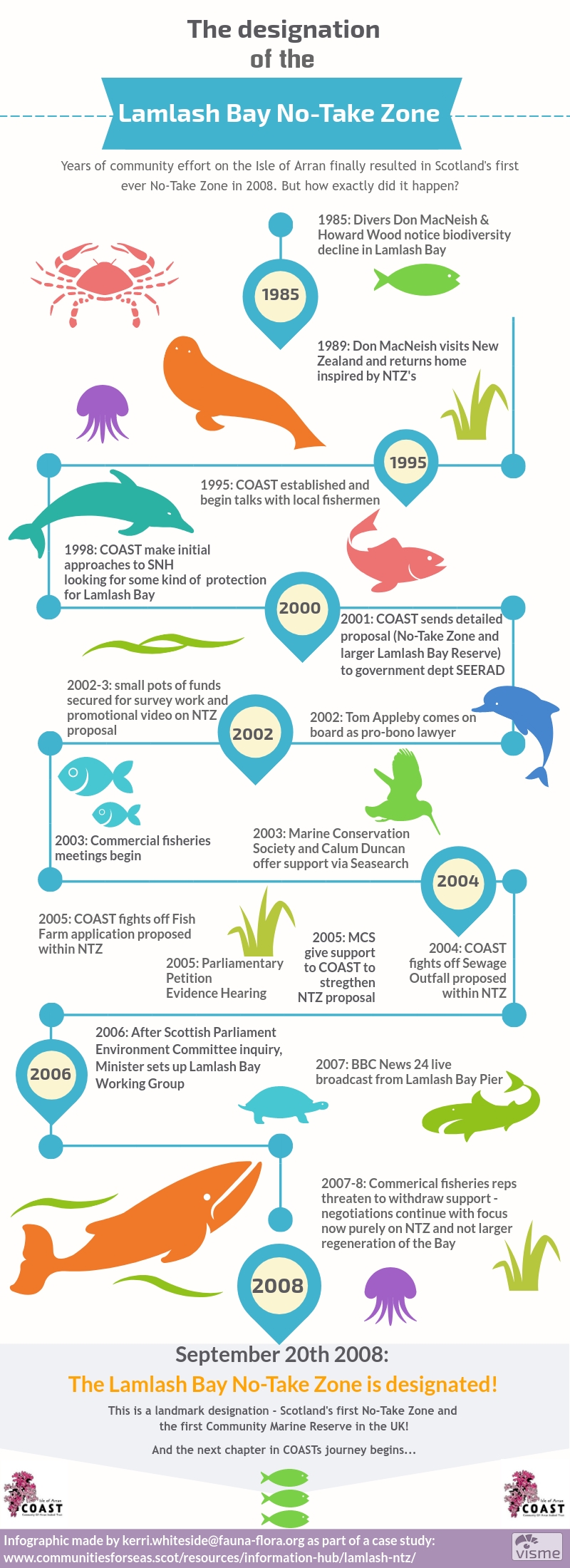No-Take Zone Common Lobster © Howard Wood COAST
In 2008 Scotland’s first No-Take Zone (NTZ) was designated, covering an area of 2.67km² within Lamlash Bay, off the east coast of the Isle of Arran. This designation was the direct result of pressure brought to bear by the local community group, the Community of Arran Seabed Trust (COAST).
Pioneers of community marine conservation
Although a small area (relative to other marine reserves), the Lamlash Bay NTZ is recognised as being the only area of Scottish seabed where both mobile and static gear closures are in place as a direct result of local grass-roots pressure.
The achievement of the Lamlash Bay NTZ did not merely mark a conservation gain within Scotland but arguably marked a significant challenge to the status-quo of the Scottish Government’s management of fisheries.
From the outset COAST had to break through the perceptible indifference toward the role of communities-of-place within marine management, which has still not been fully legitimatised.
Whilst COAST’s founders set out with a very specific goal – to close off and manage a small area of the sea for natural regeneration – the result has been the development of a far broader local movement and, in due course, a much larger MPA designation.
An authentic Grassroots movement
To COAST’s founders, when they set out, their small proposal for regeneration would be relatively inconsequential. Its legacy has proved anything but – it represents a stance that a small demonstration to protect the environment can make huge ripples.
COAST faced many hurdles in their pursuit of the NTZ – from commercial fisheries stakeholders, internal Government processes and other unforeseen environmental fire-fighting. Growing support meant community success but also brought with it differing perspectives, which had to be balanced.
This all helped, however, to create an organic, authentic community movement which realised its own potential as it was setting its own parameters – and instinctively and relentlessly pushed these parameters from within.
The simple and principal message that COAST has always championed, and still champions to this day, is that the Arran island community – and all coastal and island communities – should have more say in what goes on in the waters around them.

